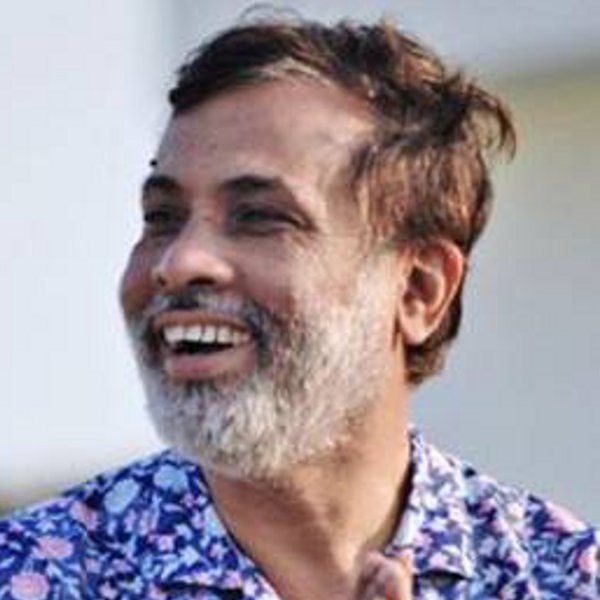Sanjoy Ganguly

Sanjoy Ganguly became active in rural Bengal’s theatre in the early 1980s. His encounter with Augusto Boal and his own passionate commitment to the creation of a just and equal society, led him to found Jana Sanskriti, an independent organization committed to the empowerment of various communities through the use of theatre. With more than thirty active theatre groups, Jana Sanskriti is now the largest organization of its kind in India.
Over the last three decades Jana Sanskriti has addressed issues such as domestic violence, child marriage, girl child trafficking, child abuse, maternal and child health, primary education and health care, illicit liquor, – all through theatre. As Augusto Boal said, “Jana Sanskriti is the largest and longest lasting forum theatre operation in the world”. Nine of the West Bengal-based teams consist entirely of women.
WORKSHOP
Cycle B: 18 July – 1 August
Antigone or when I becomes We and We becomes They
Kreon acts as a blind bureaucrat, fails to take Ethics, Love and personal relationships into account… Or could it be that Antigone, by defending the ancestral tradition and the private sphere, breaks the law of the Polis and the collectivity, and Kreon, by contrast, defends it as he should? Which one of the two is committing Hubris? Who is the Oppressor, who is the A-polis? Who is the Oppressed οr the Protagonist to empathize with? What is the role of the Chorus, of the community of citizens, of the Demos? We will explore these questions by using a vivid and very powerful and influential popular/social theatre movement: the Indian Jana Sanskriti and the Brazilian Theatre of the Oppressed. The aim is to create a new merged private/public sphere, a new Agora (Forum) of the artists as citizens and the citizens as artists, that are able to grasp and develop a social change project through the language of theatricality, the metaphorical world of drama, and through internal revolution and collective action.
In this workshop, we will develop the story of Antigone by Sophocles by using theatre games and exercises as social metaphors. Actors will script the play instead of playing the script. We will also use theatrical techniques to understand the characters emerging in the story of the play. After the development of the story we will implement several rehearsal techniques. Subsequently, movements, music and other aspects will be incorporated in the play’s structure.
Prerequisites: 1) Read carefully Antigone by Sophocles beforehand (preferably in your language), 2) Bring along instruments or objects that produce sounds.
Working language: English
Addressed to student and professional actors as well as dramaturgs and directors.
Jointly taught with Christina Zoniou





